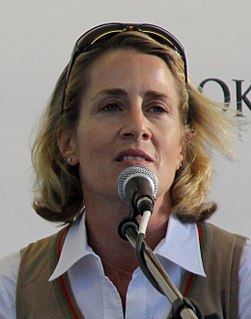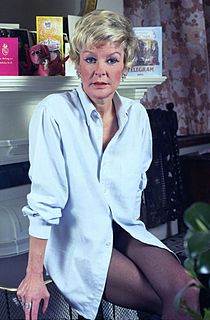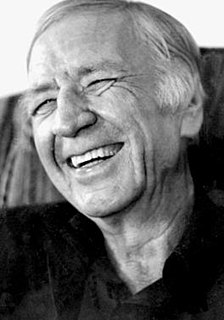A Quote by Charles Frazier
I've always thought Harper Lee might have made a great decision. Much as you'd like to have more books by her, there's something about just one that's kind of mysterious and nice. On the other hand, the New York gossip about me was that I'd never write another book. So I thought, 'Well, I will then.'
Related Quotes
I've always thought Harper Lee might have made a great decision. Much as you'd like to have more books by her, there's something about just one that's kind of mysterious and nice. On the other hand, the New York gossip about me was that I'd never write another book. So I thought, 'Well, I will then.
Back in my days as a children's book editor, my superiors caught on to the fact that teenagers were using the Internet to gossip about each other, and thought it might be nifty to develop a series of books about an anonymous high-school blogger who gossips about her classmates. The concept was passed on to me.
I talked to my mother about it a lot. I asked her what it was like to grow up in New York and Harlem in the 1920s and 1930s, and I asked her about a woman leaving her husband. I asked her about how she would feel about that woman, and my mother grew up in the Church Of God In Christ, and she told me that the woman might be isolated because the other women thought she might go and come after their husbands. That's how they thought then.
You could say I'd rewritten the same novel three times and I thought I had to move on. The success of the book, and then the movie, had by then also created a commercial expectation and I remember touring America and seeing people in the audiences who I thought might not want to read the books I wanted to write next. My constituency had become broader, but more mysterious to me.
I've always been fascinated by books. When I was young, my grandfather used to hand out a book - which would be anything from a biography to a classic - to me every week and ask me to write a piece on what I thought about it. On the other hand, my mother used to love reading thrillers and bestsellers.
When I lived in New York, there wasn't as much TV or film around. I got asked to do a couple of indie films, just based on me being from The Smashing Pumpkins and A Perfect Circle. I did a couple of indie movies from Japan and one from Canada, and I thought it was an exciting, fun thing to do. I had a great time doing it, it was just that, in New York, there really wasn't as much. My studio in New York closed, so I moved out to L.A. and just started looking into composing as another thing to do, as a musician. I like it a lot. It's fun and it's a different way of thinking about music.
I received a phone call from my mother, and it was so complicated and involved, and it reminded me of just how it is in a family, and how it is in Mexico, and gossip, and all this stuff. And I thought, well, why can't a documentary be made about gossip? And in that way, I touch upon these other things - identity, cultural identity, and aesthetics.
I looked at her, with her hair spilled out on the pillows and the warmth of her body warming mine. And I thought, god-dang, if this ain't a heck of a way to be in bed with a pretty woman. The two of you arguing about murder, and threatening each other, when you're supposed to be in love and you could be doing something pretty nice. And then I thought, well, maybe it ain't so strange after all. Maybe it's like this with most people, everyone doing pretty much the same thing except in a different way. And all the time they're holding heaven in their hands.
I had a fantasy as a child that I might be a writer someday. I always thought that meant you went to New York or Paris. But after that intense summer, I never thought that I wanted to live any place but Chicago. It also made me see what the stakes were in the civil rights movement. And it made me see what real hatred was like and the forms that it took. But it also made me understand how powerless ordinary people feel in their lives.
There's something that happens where you go, if you're lucky, goodness me, from film to another film to another film. And you can sort of feel that if you step off that treadmill, it might all go horribly wrong and you might never be employed again, you know. And I suddenly thought that that's not necessarily the case. And I also thought we make drama as actors about people in the world and that if you are on that treadmill, you start making films about other films.






































